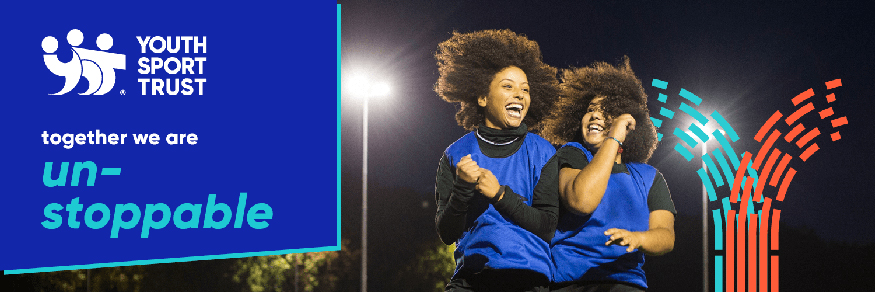Daily physical activity and sport should be a universal entitlement in a post-pandemic world where nothing is more important than young people’s recovery, wellbeing, education and development.
Our 2018 strategy warned of a crisis in young people’s wellbeing. Rising health and wellbeing issues among young people had come at the end of a decade characterized by cuts to Physical Education, the growth of social media and increasingly sedentary lifestyles. These challenges became even more pressing during the global pandemic which had such a profound effect on young people’s education and development.
Our ambition is to tackle the decline in young people’s wellbeing by transforming Physical Education and removing barriers to participation, while harnessing the power of sport to empower youth activism and unlock potential in young people facing the greatest disadvantage.
We work with young people, schools, teachers, parents and coaches to change young lives today and help build a brighter tomorrow.
The importance of physical activity for children and young people’s health is well established and there is increasing recognition of the potential of physical activity to impact positively on a wide variety of health and wellbeing outcomes. Recent government guidance presents evidence on the important role and benefits of physical activity for children including:
Through our own work and research, we know that engaging children through sport, play and physical activity has the power to transform lives and strengthen communities – to challenge discrimination, promote inclusion and give young people a voice. Sport, play and physical activity is itself a fundamental child right and a powerful key to ensuring children’s rights are promoted, respected, protected, and realised so all children can flourish.
To read our full strategy go to http://strategy.youthsporttrust.org/

We work in and through physical education, bringing together communities of educators and equipping them with the training, practical tools and resources to achieve more for every child. We are also a leading source of PE and youth sport news, insight and opinion.
Our work with Multi-Academy Trusts is guided by insight from MAT leaders, practitioners, and partner organisations from across the sector. We work with MATs to provide them with tailored support most appropriate to the needs of their schools. This includes:
Through our Membership we can provide a range of bespoke and cost-effective solutions to meet the needs of Trusts and their schools. https://www.youthsporttrust.org/join-us/membership#Clusters
YST has a wide variety of programmes that are available for schools to access. Programmes are insight driven and developed in partnership with young people and educators and aim to:
To find out more about our programmes go to https://www.youthsporttrust.org/programmes
We have a range of free to access and paid for products and services developed to help tackle the complex and demanding challenges across the whole school. To find out more go to https://www.youthsporttrust.org/resources
For more information or enquiries contact multiacademytrusts@youthsporttrust.org
Our work reaches young people across the UK. Last year, at the mid-way point in delivering our 2018-22 Strategy ‘Believing in Every Child’s Future’ we had reached 630,000 children, 26,771 teachers, coaches and practitioners in over 18,420 schools. Of those we worked with:
In our latest Impact Report 2020 we share data, insights and stories from some of the children and young people whose wellbeing we have supported. Working together with schools and valued partners we have improved physical and mental health, nurtured the development of character and leadership, and fostered inclusion and empathy to bring down barriers and build connections.
Our work reaches around 20,000 schools across the UK and we operate locally and nationally – leading in schools, partnering in the community and providing support in the home:
Our inclusive and innovative programmes are driven and developed in partnership with young people and educators. Empowering and supporting young people to improve health and wellbeing, develop character and leadership; and promote inclusion and empathy. For example: